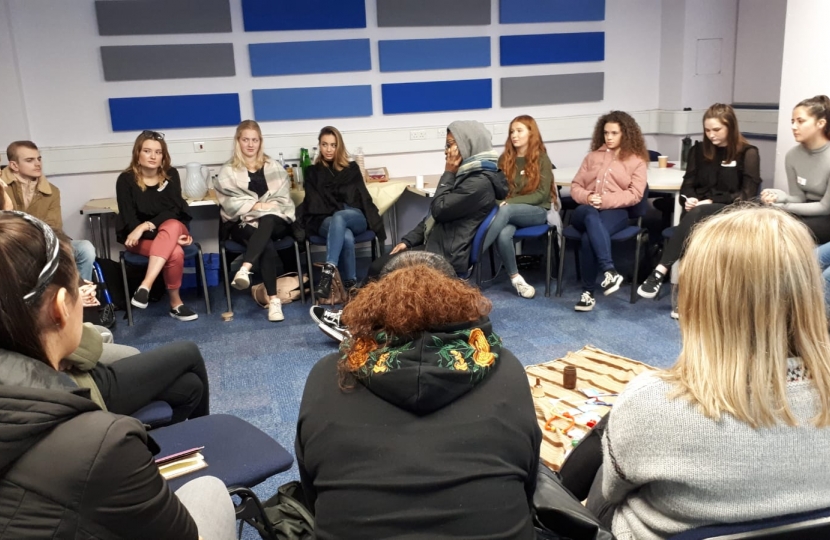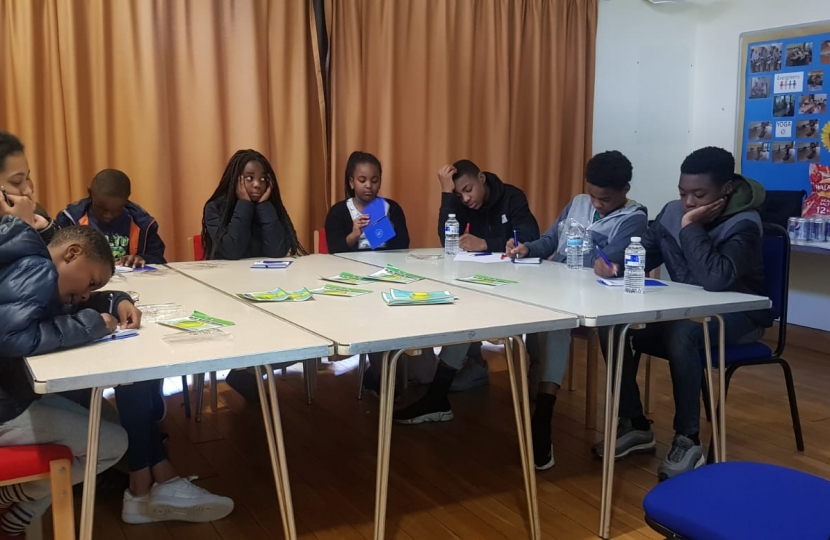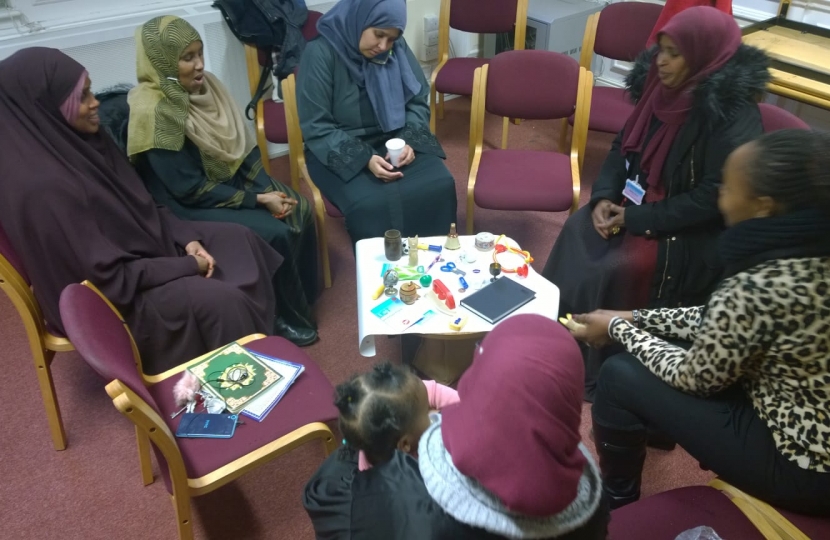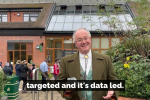The Police and Crime Commissioner does not only hold the Chief Constable to account for effective policing across Leicester, Leicestershire and Rutland. He is also responsible for providing or commissioning services relating to victim support, crime prevention and associated matters.
In this series of article I am looking at some of these non-police matters. This article about Restorative Justice was kindly written by Dr Denis Tanfa of the Restorative Justive Initiative Midlands. You an follow him on Twitter at @rjimidlands
- Introduction
Restorative Justice (RJ) is a philosophical approach to responding to crime. Its primary aim is to repair the harm caused by a criminal act, including the harm that ripples out to affect secondary victims, families, and communities, by holding the offender accountable for that harm. Processes may include victim offender conference, family group conferencing (or community conferencing) and peace-making circles, all of which involve dialogue between victims, offenders, and others affected by criminal harm. In the UK, the push from the Ministry of Justice has been for high quality restorative justice to be available to victims at every stage of the criminal justice system.
- The organisation
Restorative Justice Initiative Midlands (RJIM) is a grass root charity based in Leicester since 2010. As the only community organisation delivering Restorative Justice Services in the County, we provide Restorative Justice service to local communities, victims and incarcerated offenders in Leicester, Leicestershire and Rutland. Over the past 10 years, we have trained more than 500 (local community members students, criminal justice officials) as RJ practitioners and we have facilitated more than 450 RJ cases of crime/conflicts between victim and offenders. We also assist in the reintegration of offenders and ex-offenders with their families/communities. Our mission is to develop and support various models of justice which create opportunities between victims and offenders, incarcerated offenders and their communities for healing and restoration. Our practice is in line with the revised Victim Code of 2015 which gives all victims of crime the opportunity to request Restorative Justice as they go through the criminal justice process. We deliver high standard Restorative Justice intervention in accordance with the Best Practice Guidance for Restorative Practice by the Restorative Justice Council and the Ministry of Justice. Our aim is to present, over a relatively long period, how Restorative Justice (RJ) is practiced in an integrated manner in communities in Leicestershire and Rutland. Over the past 10 years we have worked closely with Leicestershire police, OPCC, Leicester City Council, Leicestershire County Council, De Montfort University, University of Leicester, Voluntary Action Leicestershire and some local community organisations in the delivery of Restorative Justice services.
We provide Restorative Justice Services to all Victims of Crimes and High Risk Anti-Social Behaviors throughout the Criminal Justice Process. We are committed to the Ministry of Justice’s Action Plan which calls for victims to have access to restorative justice services at every stage of the criminal justice system. The Crime and Courts Act 2013 made it explicit that sentencers can adjourn cases to allow for pre-sentence restorative justice to take place.
- What we do
To meet the needs of all victims of crime, we will implement a series of restorative justice options available for victims. This will be based upon a detailed assessment, following the Best Practice guide set out by the Restorative Justice Council. The various RJ options that we would provide are as follows:
-
- Direct Restorative Justice (face-to-face)
A restorative conference: (sometimes called a victim-offender conference) involves a trained facilitator, the victim(s), the offender(s), and supporters (usually family members). Such meetings conclude with an agreement for further steps to be taken.
-
- A community/family restorative Justice conference
This involves members of the community which has been affected by a crime and all or some of the offenders. This is facilitated in the same way as a restorative conference, but it differs in that it can involve many people. This option is also suitable for offender reintegration back into the community.
-
- Victim Impact Panel
This option gives victims the opportunity to speak to surrogate offenders in cases where the direct offender refuses to take part in the process. It is also useful in cases where victims do not want to meet their offenders but want to express the impact of the crime’s surrogates.
-
- Restorative Circled dialogue
Restorative Circle brings together all those in the community/family affected by challenging circumstances in discovering the solutions. Every person in the circle shares responsibility for its functioning. One of the main purposes of circle dialogue is building community. Another purpose is supporting the kinds of honest, authentic dialogue that is necessary to effectively respond to challenging behaviors and circumstances. The principle of non-interference means that we simply welcome what people say without trying to influence them. If a victim is in pain, we listen and allow simple listening to be a comfort; we do not try to take away their pain. If someone is confused, we simply listen and trust that in its own way the circle will provide clarification. If someone is angry, we honour their anger. This principle is so important in building a community where people feel safe to express themselves.
-
- Indirect Shuttle mediation
Information and written communication between victim(s) and offender(s) co- ordinated by a trained facilitator.
-
- Telephone or video conference
Like a restorative conference, carried out by telephone or video rather than in person.
- Other programmes that we deliver.
- Criminal Justice Training for young people and young people at risk of offending
- Women of Peace: Train local women in the community to deal with neighborhoods conflicts and family conflicts.
- We launched the Police and Crime Commissioner’s Football Tournament for under 10s as a strategy for crime prevention and education.
- We will soon launch our Bike Riding Project for young people.
- We are also launching “Timbuktu Learning Centre” to assist young people catch up with their schoolwork.
For more information about our work and if you would like to support what we do, please contact:
Mr Leon Dundas
Email: [email protected]




